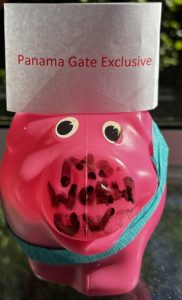Travel Log – Singapore
Padmini Arhant
Singapore name originated from Tamil language. In Tamil, Singam means lion and pore (Ore) or Ur means City. Hence it is referred to as the Lion City.
When the Tamil Emperor Rajendra Cholan arrived in 1025 A.D. the shape of the island perceived as lion prompting him to call the city Singapore meaning the Lion City. The Chola King made inroads into then Sri Vijaya that later became known as Malaysia and Indonesia comprising widespread Tamil population in Malaysia and Hindu religion in many parts of Indonesia like Bali and Jakarta.
Singapore is a small island nation with current population around 5.8 million of which the domestic figure would account for nearly 3-4 million while the rest represent immigrants from western nations predominantly western Europe contributing to Eurasians in the inter racial marriage and labor force from developing nations in South East and South Asia.
Singapore historically part of Malaysia due to geographical location the tip of Malaysian Peninsula and Malay rule. Singapore is a diverse nation hosting three national languages Malay, Mandarin and Tamil. The business and economic sector is well versed in English language as well.
Singapore’s rise to modernization stems from targeted goals by then leadership under late Prime Minister Lee Kuan Yew as the first Prime Minister in governance over three decades though not conforming to democracy or republic structure.
Prime Minister Lee Kuan Yew emulation of Western Capitalist economy and China’s Communist political policy in terms of hard line or iron fist rule with centralized power under specific entity in this case with PM Lee and family received praise on economic factor and criticism on political front that continues after his demise in 2015.
It is important to understand communism and socialism that are typically expected to function as welfare systems using national wealth and revenue for the general well being and betterment of all in the nation.
Communism not necessarily means national wealth distribution amongst all eradicating poverty, hunger and disease implied in the definition and similarly socialism is not premised on social economic interests of the nation at large. The implementation of communism and socialism vastly different from interpretation of such concepts.
The forces long been in control of world politics, economy and all affairs until today maintain communism and socialism as major threat to Capitalism despite latter espousing these models to maximum advantage. Ironically, communism has little to do with eliminating economic disparity and lots in creating economic inequality arising from concentration of power within core circle prevalent in Capitalism via economic status.
Likewise, the anti-socialists are the biggest socialists when it comes to Capitalist Socialism specifically expending taxpayers funds and national wealth to bail out defunct and insolvent corporations as well as submerging financial institutions in the wake of corporate defaults on bank loans erupting in banking sector crises. Then there are State players in governments as heads of the state or members related to them risking citizens retirement savings, social security and medicare in high stake ponzi scheme for vested interests leaving the vulnerable population and poorest segments in indefinite economic plight.
These activities contribute to alarming national debt and budget deficit witnessed in corporate run governments in the developed and developing nations alike. The governments are involved in extending retirement age to cover up scandals costing taxpayers and the economy in the short and long run.
Capitalism thriving under communism and socialism as enunciated above is never a problem to global entities behind the gamut. The false image of their anti-Communism and anti-Socialism has been convenient for Capitalists elitists to wage wars against nations on the basis of thwarting communist ideology and displacing socialist governments in Latin America, Middle East, Africa and Asia exclusively for economic resources and strategic dominance world wide widening the gap between the super rich and the majority in abject poverty.
The other component is developed nation like Switzerland boosting self-development at the expense of developing nations in facilitating safe havens with Swiss banks and financial networks in their domain attracting black money, illegal wealth from the rich, famous and powerful primarily gained in tax evasions, embezzlement and various nefarious dealings that are responsible in depriving many developing nations their economic prospects. Singapore is one of the destinations for those engaged in Hawala or money transfer system transforming illegitimate funds and transactions otherwise known as money laundering.
Singapore is a service oriented economy and found a suitable hub for finance industry. Singapore is also a commercial port with shipping companies utilizing the location as transit zone connecting with all regions in South East Asia, South Asia, Europe and the rest of the world.
Singapore’s dilemma is the island nation survival on imports with no natural resources and scarcity of land for agriculture and natural produce. Singapore government hope on Trans-Pacific Partnership (TPP) Trade with ‘United States for free and fair trade in addition to measures designed to promote more efficient markets and higher levels of economic growth’ regrettably did not come into fruition. United States withdrawal from TPP agreement talks was a setback for Singapore and other South East Asian nations that could have been mutually beneficial.
Singapore has conscription i.e. mandatory draft of citizens the male in particular for military service. The Singaporeans are also dealing with the usual competitiveness upon immigrant workers recruited on lower wages posing challenges for work force demanding higher payments. As such the cost of living in Singapore is fairly expensive. The government allocated housing for citizens under the housing development board (HDB) constructed flats and apartments are popular and alleviate escalating housing costs in this regard.
Singapore also has compulsory health savings in the form of Medi-Save that are appropriated towards citizens health care and medical expense. The city has excellent transportation for local residents and foreigners as tourists and business travelers to commute at ease and greater efficiency for a minimal price. The exorbitant price on automobile in a way is to encourage citizens to use state invested public transport besides curbing environment pollution from carbon emission.
Not to mention the city’s impressive ranking in the world’s chart on clean, safe and secure environment resulting from strict ordinance and rules for citizens and visitors barring concession.
Alternatively, Singapore venture in casinos and liquor stores all around to lure tourists and foreign customers for economic purpose in fact hurting the locals and many families ruined from compulsive habits affecting lives in the process. These set ups aimed at economic growth need not take toll on physical and moral health.
The highlights have own merits and at the same time the fundamental of democracy and human rights viz. political freedom and individual rights are ominously missing in this organized obedient state.
Perhaps the notion among authorities in power that liberty accompany civil disobedience denying citizens the basic rights to voice their concerns and views on issues related to government performance and decisions ever remain a stigma for a country with enormous potential accommodating cultural and ethnic diversity.
Singapore moving towards democratic ways and principles in sharing power among citizens across the spectrum rather than retained with one political family would demonstrate real progress.
Citizens access to equal opportunity in politics, economic and social aspects determine any nation’s democratic values and independence.
Thank you.
Padmini Arhant
Author & Presenter PadminiArhant.com
Prakrithi.PadminiArhant.com









 mania as that is not going to deliver what is aimed at and desired in vain except confirming your asinine indulgence.
mania as that is not going to deliver what is aimed at and desired in vain except confirming your asinine indulgence.





Leave a Reply
Your email is safe with us.